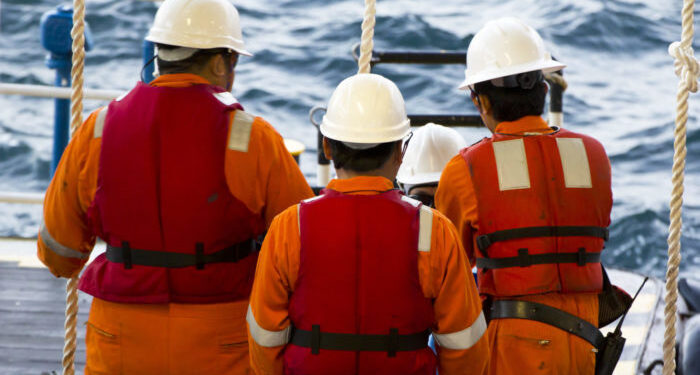On Friday, December 6, the Director of the Merchant Navy Training Board (MNTB), Kathryn Neilson, addressed the seventy Vships cadets and staff during their conference; highlighting the vitally important work implemented by the MNTB right now.
The UK Chamber of Shipping advises that the MNTB is the shipping industry’s central body for promoting and developing sector specific education, training and skills.
[smlsubform prepend=”GET THE SAFETY4SEA IN YOUR INBOX!” showname=false emailtxt=”” emailholder=”Enter your email address” showsubmit=true submittxt=”Submit” jsthanks=false thankyou=”Thank you for subscribing to our mailing list”]
During her speech the Director talked about the rapid development of shipboard technology and the introduction of autonomous vessels and the impact that will have on Maritime Training and Education, highlighting the need to review the skills needed for future seafarers.
Adding to this, Kathryn Neilson, outlined that
The UK shipping industry contributes nearly £20bn a year to our economy and supports nearly 200,000 jobs and through the MNTB we will make sure the UK shipping industry has the talent to thrive in the future.
It is said that the way in which seafarer training is delivered is now under constant scrutiny and remains a topic on every conference agenda.
According to the statement,
Modernization of the teaching tools should be high on the agenda and the development of the new MNTB electronic Training Record Book is well underway with the end user trial period set for Spring 2020.
The MNTB is currently in the process of a full review of its training standards and cadet program content and is further committed to ensure seafarer training and education in the UK is fit for purpose; what is essential is to ensure that every cadet in the UK receives a quality sea time experience- even though, policing can be challenging.
The director further went on to say that the simulator training program that the MNTB is developing to act as a supplement to sea-time aims to enhance the cadet’s practical skills and ensure all cadets start their sea-time experience on a level playing field.
It has been previously said that some good tips to attract young people to join maritime jobs
- We should better educate them: Education is the very heart of the maritime industry. Seafarers should require extensive training before they can work onboard. For many young people it is a dream to graduate from a maritime university and start a sea job. However, many students complete their studies without practicing a maritime job during them. It is of essence to participate in drills, exercises, or assessments to familiarize themselves with potential risks. Otherwise, the first time onboard may cause a culture shock to prospective seafarers. Eventually, they tend to drop out maritime jobs. Studies have shown that crew members are generally more motivated with their roles when they’re constantly learning new things, as working onboard.
- Provide enhanced communications services: According to data presented by the “Mission to Seafarers”, seafarers are critical of companies who either do not provide internet or call access. Young seafarers say that internet access plays a key role to seafarer’s welfare. Indeed, the sense of isolation may be one of the worst feelings in maritime jobs. Enhanced communications services may be less expensive than training new crewmembers.
- Offer better wage: Financial factors are always significant when people choose a sea job. Wages earned in maritime jobs should be above the similar professions ashore to attract the Youngs join one of the ten most dangerous jobs in the world. Yet, in developing countries, ships’ officers working on internationally trading ships are amongst the very highest paid in their countries, according to ICS.
- Let’s not underestimate the need for shore leave: Shore leave can improve seafarers’ health as well as the safe and efficient operation of a vessel. However, in the past few years there has been a reduction in shore leaves granted to seafarers. Shore leave is a problem for the modern seafarers who want to be able to relax and feel refreshed. It worth mentioning here that, the amendments to the FAL Convention have entered into force globally from 1st January 2018, to strengthen seafarers’ rights to shore leave and to achieve the smooth transit in ports of ships, cargo and passengers.
- The importance of following the “hours of rest”: State poor management of crew on board ships usually increase workload. When hours of rest are not being followed, seafarer’s dissatisfaction stands to reason. Workload is considered heavy when one works excessive hours or performs demanding and stressful tasks which can also result in fatigue.






























































